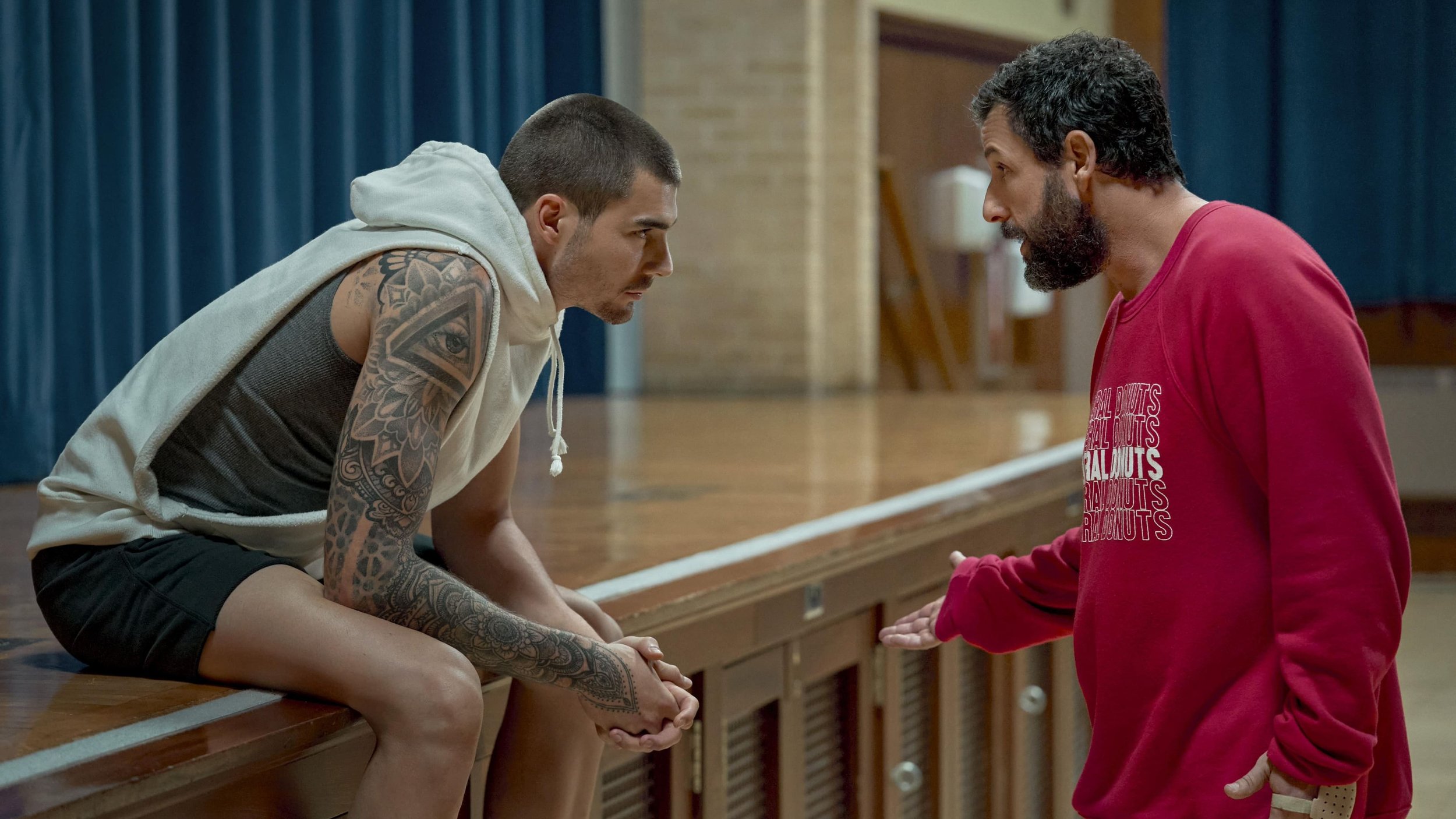Hustle
NETFLIXLightning may strike more than twice for Adam Sandler, and it does so intermittently between horrendous comedy vehicles that somehow pull in the American market and those beyond the pond. The offset of those cash cow entities is the occasional riff that sees The Sandman craft something intricate, interesting, or at least with its finger on the pulse of culture. Uncut Gems managed to be the rabble-rousing thriller Safdie Brothers fans were hoping for; Punch-Drunk Love is an early gem that assured audiences Sandler was and still is capable of more than giggle fits and golfing antics. Hustle does more for Sandler and the growing consistency he has offered to audiences recently.
A love of basketball is thankfully unnecessary, so audiences need not worry if they cannot tell their Celtics and, well, whatever other teams are part of that dullard sport. Hustle plays up the anticipation of the game well, rather than the game itself. Slick montage moments that open this feature showcase Sandler’s leading performance extremely intimately. The flashes of future relevance, the frustrations bubbling for a family man trying to hold it together. Stanley Sugarman (Sandler) is wonderfully likeable, and Queen Latifah alongside Sandler is such a grand form of chemistry, radiant at the best of times and a cornerstone of the feature. Sandler and Duvall share equally important chemistry, the protégé dynamic baked to near-perfection, however briefly.
But for all the great performances, the technical merits are wavering. Extremely quick cuts that try and spice up meeting room scenes instead create a head spin and lack of foundation. There is no doubting these people are in the same room as one another, trading heated comments back and forth in that usual dramatic fashion, but their placement and steadiness are completely removed by director Jeremiah Zagar. His direction here has all the markings of trying to turn Hustle into the ball game it looks to capitalise on. Doing that when relying on dialogue is not a partnership that works well. Still, this is Sandler following a passionate narrative alongside solid works from Ben Foster and Kenny Smith.
What works so well for Sandler’s recent films is an element of surprise. To see Latifah and Duvall in some expert supporting performances that rally around Sandler, who once more hits the highs everyone knows he is capable of, is exceptional. A rewarding Netflix feature not just because it ends an extremely long dry spell for the corporation, but because it has cracked out one of the most consistent features of the year. Hustle will jostle itself nowhere close to the top spot of an end-of-year list – unless the year of releases fails to pick up – but to see Sandler on his A-Game alongside those that his dramatic exceptionalism is deserving of is both heart-warming and sincerely rewarding to see develop. Hustle provides Sandler with Sugarman, one of the finest characters the comedian has ever portrayed. It is up there with his finest works; it is just a shame it cannot be carried on a better creative line. Sandler breaks his back once more to make a good project into a borderline great one. Hustle is nothing out of the ordinary, but the ordinary is adapted well here.


